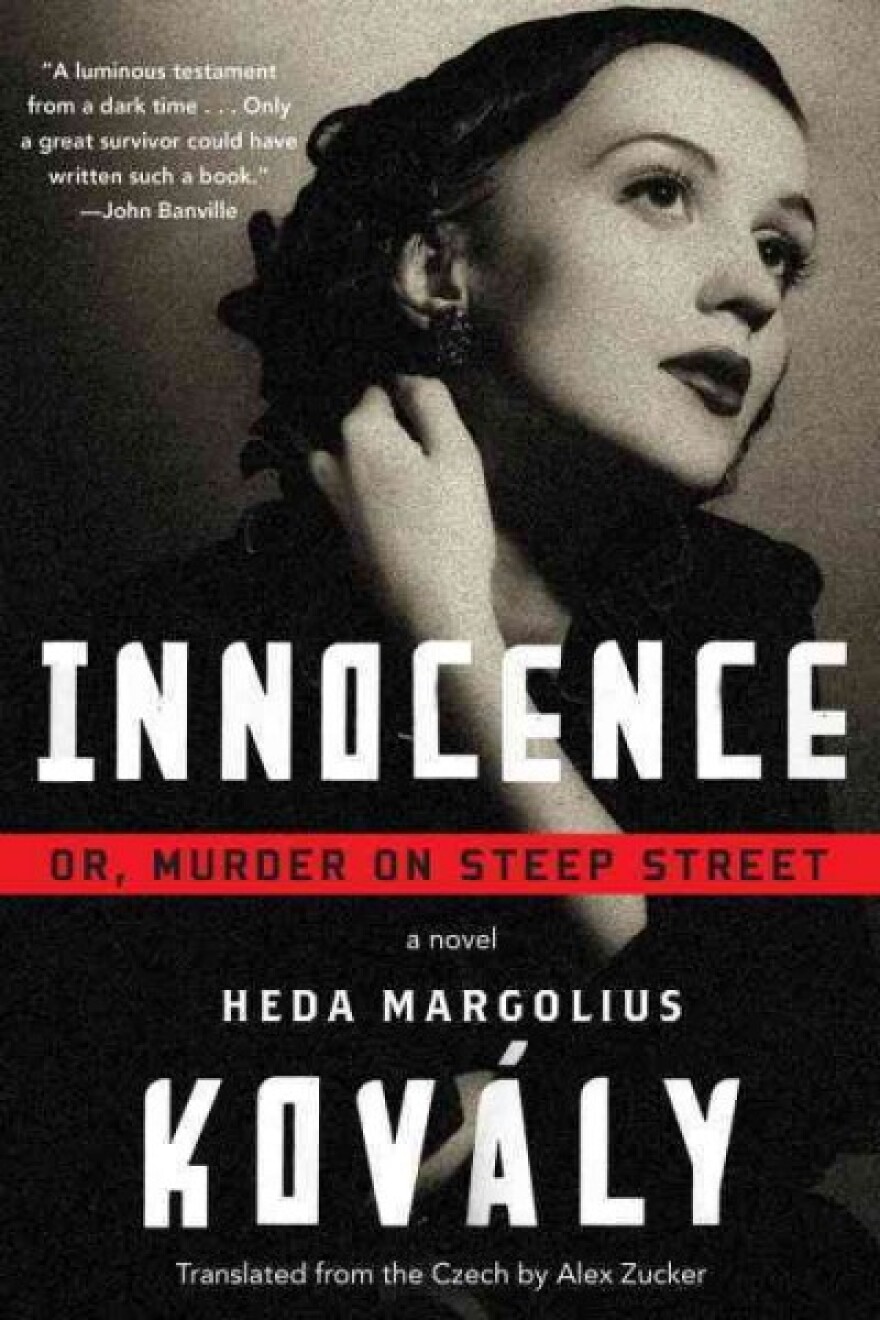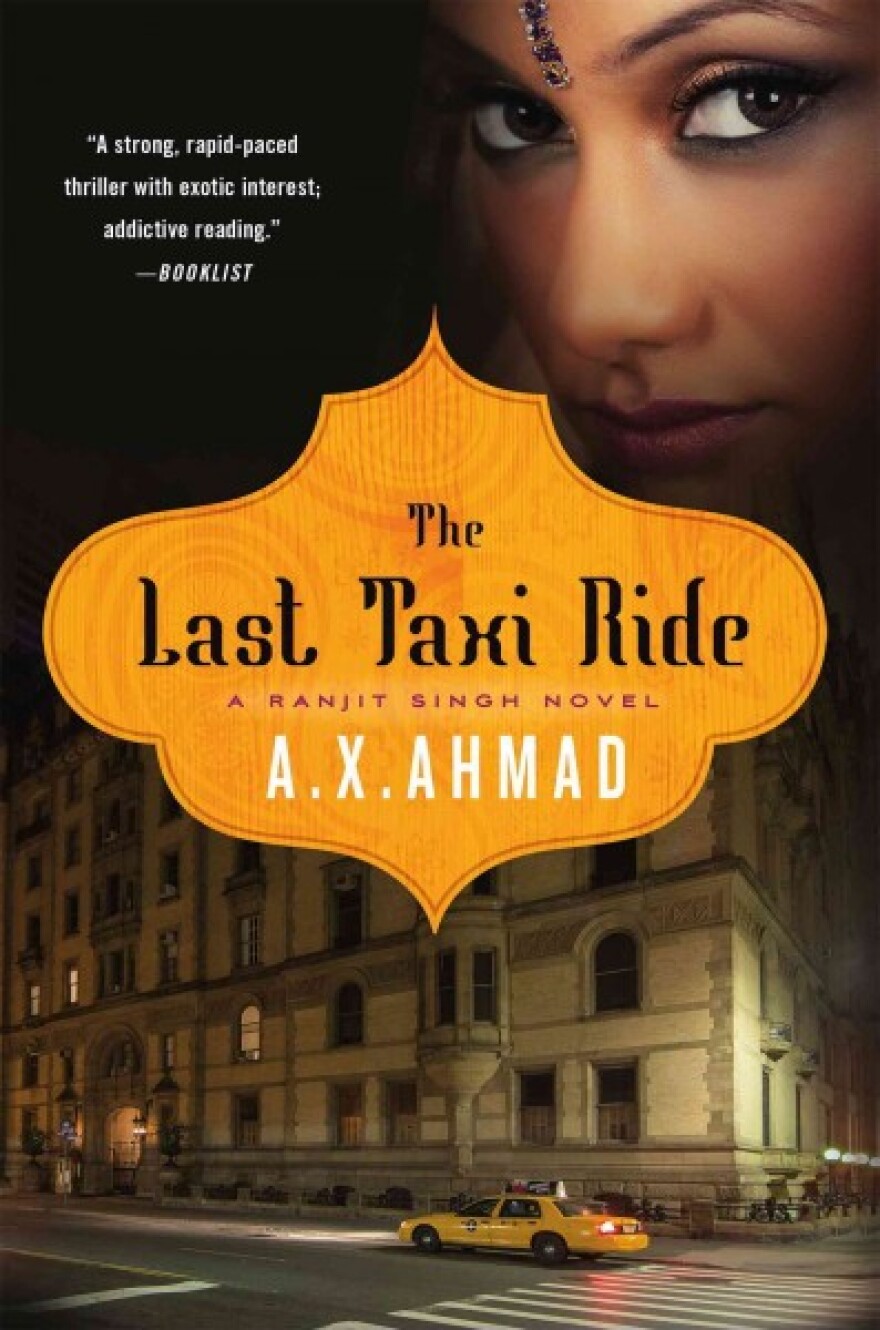I've just spent much of the past two weeks on my couch, reading suspense fiction. The result of all that heavy lifting is this list of recommendations — four thrillers, very different in style and MO, but all deadly accurate in their aim to entertain.
Copyright 2024 Fresh Air. To see more, visit Fresh Air.
Maureen Corrigan Four crime novels for FA
Innocence; Or, Murder On Steep Street

by Heda Margolius Kovaly and Alex Zucker
Heda Margolius Kovaly is a writer best-known for her memoir, Under a Cruel Star, about her ordeal in Nazi concentration camps and living under communist rule in Czechoslovakia. After her first husband, a government official, was executed in a show trial in 1952, Kovaly became a pariah, barely supporting herself and her small son by working as a translator.
Of all the writers whose work she translated before her death in 2010 — including Heinrich Boll, Arthur Miller and Philip Roth — Kovaly most revered the work of Raymond Chandler. In 1985, Kovaly wrote a suspense novel of her own called Innocence; or, Murder on Steep Street. Soho Press has just brought out an English edition of the novel, translated from the Czech by Alex Zucker. It's set in the Prague of the 1950s, a time when the city was the living embodiment of a "paranoid landscape."
The center of the intrigue in this tale filled with spies, informers, murderers, snitches and victims is the Horizon Cinema, a movie theater where people go for escape. Kovaly describes how the moviegoers always left the theater at night silently, because they were "just focused on not getting bruised during the steep descent back into reality." Our heroine is a young usher named Helena — modeled partly on Kovaly herself — who is desperate to rescue her husband, who has been thrown into prison for espionage. Everyone else from the concession stand operator to the cleaning lady has some scam going on.
The great draw of Innocence; or, Murder on Steep Street is the menacing view it gives us of communist Prague. Helena, for instance, describes being hustled into a small interrogation room and having "pairs [of men's eyes] stick to [her] face like frog's legs." Kovaly channels Chandler but takes him into a landscape far, far away from wide-open LA.
Second Life

by S. J. Watson
Second Life, by best-selling author S.J. Watson, is an erotic psychological thriller about a British woman named Julia who is tormented by guilt when her younger sister, Katie, is murdered leaving a bar in Paris. In an effort to belatedly understand her sister, Julia snoops online and learns that Katie was visiting chat rooms for sex, virtual and otherwise.
Julia finds herself drawn into this online demimonde and discovers that simply pressing the "delete" key can't erase her own desire, once awakened. Watson introduces her novel with two epigraphs about sexuality and danger, one from Michel Foucault and the other from W.B. Yeats. Those quotes also signal the literary ambitions of this nuanced thriller whose end, I guarantee, you'll never see coming.
Run You Down

by Julia Dahl
Julia Dahl's debut novel, Invisible City, was a finalist for an Edgar Award; her second novel is called Run You Down, and it returns readers to what has become Dahl's home territory: the world of ultra-Orthodox Jews living in Brooklyn and upstate New York.
Dahl's recurring heroine is a tabloid reporter named Rebekah Roberts, whose own long-lost mother was Hasidic; here, Rebekah is assigned to snoop into the possible murder of a young mother who was found dead in her bathtub and, as ultra-Orthodox ritual dictates, quickly buried. Soon, Rebekah is up to her tuchis in trouble.
Though the plot becomes a bit formulaic at the end, Dahl is an evocative writer, never more so than when she's describing the nascent yearnings of those younger members of that religious community — gay, vaguely feminist, simply different — who can't quite fit in, but can't quite leave.
The Last Taxi Ride

by A. X. Ahmad
Not quite fitting in, but not being able to leave is Ranjit Singh's situation in a nutshell. Singh is the hero of two superb suspense novels by A.X. Ahmad, the second of which, The Last Taxi Ride, has just come out in paperback.
Ranjit is a religious Sikh and a former Indian army captain now working as a cab driver in New York. The complex plot here involves the murder of a former Bollywood star and smuggling shenanigans in the human hair industry. But above all, Ahmad breathes life into the characters of Ranjit and New York City — a New York that encompasses the glories of the Dakota apartment building, as well as Little Guyana in Queens, hole-in-the-wall Pakistani kebab houses and high-roller nightclubs in downtown lofts.
Ranjit — whom his boss calls "Taliban" because of the turban he wears — is a smart and poetically melancholy investigator of the ambiguities of human personality. Nothing feels canned about this series. In fact, in this season where we've lost both P.D. James and Ruth Rendell, it's cheering to stumble upon an emerging detective like Ranjit, who feels utterly authentic and original.



